Sirius University of Science and Technology was established by Talent and Success, an Educational Foundation, on behalf of the President of the Russian Federation, Chairman of the Board of Trustees Vladimir Vladimirovich Putin on July 1, 2019.
Talent and Success was established on December 24, 2014 by prominent Russian state and public figures, scientists, athletes, artists, and musicians. The Foundation's activities are aimed at early identification, development of and further professional support for gifted children and youth in arts, sports, natural sciences, as well as engineering.
Sirius University of Science and Technology, along with the Educational Center and the Lyceum, is the core of Sirius Federal territory. Sirius ecosystem ensures the full-cycle innovation chain and creates necessary conditions for the professional training and education of talented youth.
In accordance with the development strategy, the goal of Sirius University is to prepare and educate the future scientific and technological elite of Russia by creating a qualitatively new model of education based on combining educational, scientific and innovative activities in priority areas defined by the Strategy of Scientific and Technological Development of the Russian Federation.
Special attention is paid to the development and implementation of network forms of cooperation with partner organizations in the field of basic, additional professional programs, organization of conferences, symposiums and educational modules.
The President of the Russian Federation Vladimir Putin, who heads the Board of Trustees of the Talent and Success Foundation, has outlined the mission of the University:
“The entire Sirius project is to become a kind of laboratory, a platform for creative freedom, search and experimentation, including the emergence and implementation of cutting-edge trends in design, urbanism, social development, creation of new opportunities for people and youth in particular, in brief, those innovative and creative approaches to the formation of a modern space for life, which are in our everyday demand throughout the country." (from the speech of Vladimir Putin at a meeting of the Board of Trustees of the Talent and Success Foundation, August 6, 2019).
Sirius University of Science and Technology follows the logic of the Sirius Educational Center and unites students, world-renowned outstanding and young scientists, leading Russian industries, companies, universities, and research centers.
The University sets a new quality of training for the future scientific and technological elite of Russia through the integration of science, education, and industry. It creates a fruitful and inspiring environment for harmonious personal development.
Sirius University of Science and Technology accumulates a unique intellectual, material, and technical base that can be used in the interests of the entire country. Russian academic organizations and technology companies will have access to the University's equipment, and students from other universities from all regions of the country will have access to modular educational programs and courses.
In addition to the scientific, educational, and technical-innovative components, the University is unique due to the development of other spheres of human life, such as art and creativity, active recreation and sports. The created model is entirely focused on the development of human potential as the highest value.
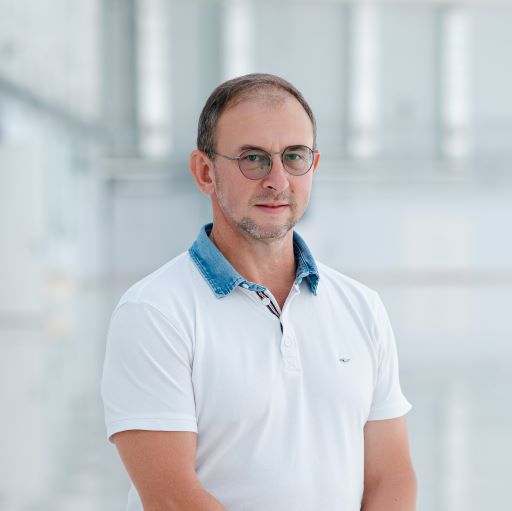
PhD, Doctor of Medical Sciences
Director executive, Scientific Center of Genetics and Life Sciences
Sirius University of Science and Technology
Head of the project "Rational Strategies for Industrial Biotechnology"
Key scientific interests: Genetic engineering of microorganisms, study of microbiota of various localizations, development of therapeutic probiotics
Department of Genetics involves conducts research in various fields of life sciences, including neurogenetics (molecular genetic basis of brain functioning), medical genetics (genomic studies of the mechanisms of aging and human diseases), agrogenetics, study of gene pools (genetic and genomic studies of biodiversity in ecology, agrobiology, and biotechnology).
Department works on a set of scientific projects devoted to both the fundamental mechanisms of the immune response and homeostatic and functional features of the immune system, including the development of various pathological conditions. Understanding the molecular mechanisms of immunity is necessary for the search for therapeutic targets and the development of new approaches to the treatment of diseases, in particular, personalized ones.
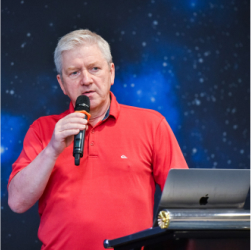
Doctor of Biological Sciences, Professor, Academician of the Russian Academy of Sciences with a degree in physical and chemical biology, Corresponding Member of the Russian Academy of Sciences with a degree in biotechnology.
One of the top 100 most cited Russian scientists.
Research interests include mechanisms of innate immunity, physiology of cytokines, reverse genetics and genome editing, mouse models of human diseases, and cancer antigens.
Includes world-class research activities at the nexus of physics, engineering, molecular biology, nano- and biotechnology, fine organic, inorganic and bioorganic synthesis, cell technologies, etc. In particular, work is underway to create smart nanobiomaterials of a new generation for in vitro diagnostics and promising medical applications.
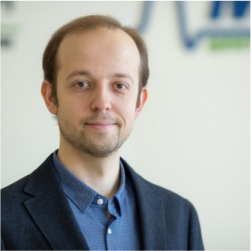
One of the pioneers in the development of "smart" nanomaterials based on hybrid ligand-dependent nanosystems operating on the molecular computing principles.
Laureate of the Presidential Prize of the Russian Federation in science and innovation for young scientists - 2017 "for the development of “smart” nanomaterials of new generation for biomedical applications and the development of foundations of autonomous biomolecular computing systems for theranostics".
Winner of Berlin Falling Walls Young Innovator 2016, the international competition for young innovators.
Winner of the international Biosensors Award 2016.
Member of the Council under the President of the Russian Federation for Science and Education (since April 2020).
Engaged in the creation of new varieties of agricultural plants with genome editing technologies. For example, one of the projects is aimed at obtaining the first domestic grape varieties with complex resistance to powdery mildew and gray rot. The Agrobiotechnology Resource Center operates unique equipment for working with plant cells, their genetic modification, as well as a set of climatic chambers for subsequent work with transformants.
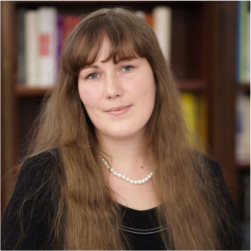
Doctor of Biological Sciences in Genetics, Professor of the Russian Academy of Sciences.
Director of N.I. Vavilov All-Russian Institute of Plant Genetic Resources, Federal Research Center, chairman of the Novosibirsk branch of Vavilov society of geneticists and breeders.
Member of the Federal Register of Experts in the Scientific and Technical Sphere of the Russian Federation, Member of the European Association for Research in Plant Breeding (EUCARPIA), Member of the Association of Scientific Editors and Publishers (ANRI).
Develops innovative functional materials based on nature-like and biodegradable systems for biomedical applications.
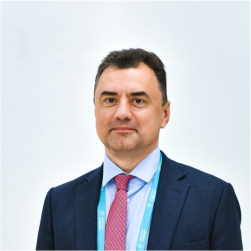
Advisor for scientific and innovative programs to the head of the Talent and Success Foundation.
One of the leading Russian experts in creating new functional materials for solar energy, biomedicine, and membrane technologies.
Scientific research in computer modeling of the structures and interactions of biological macromolecules and low molecular weight agents, creation of methods for the directed design of protein molecules with a given structure and properties, creation of original dynamic models for describing the pharmacokinetics and pharmacodynamics of original targeted drugs, development of new methods of analysis for genomic and transcriptome sequencing.
Research areas:
Develops new approaches to the creation of drugs for medical and veterinary use based on recombinant proteins and small molecules. Scientific and educational activities are focused on the design and optimization of new molecules, medicinal chemistry, in vitro and in vivo research of innovative drugs.
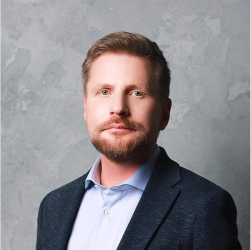
PhD in Molecular Immunology (University of Utrecht, Netherlands).
From 2005 till 2019 led development of BIOCAD – the biggest Russian biotech company, first as medical director, then as vice president for research and development. Supervised the creation of biosimilar and original monoclonal antibody-based drugs. Netakimab (anti-IL17) and prolgolimab (anti-PD1) became the first Russian original monoclonal antibodies-based drugs that have received market authorization.
Research areas:
Research activities aimed at improving technologies of recombinant viral vectors, creation of prototypes of biological products for the treatment of severe chronic diseases with a high commercialization potential, and educational activities in gene therapy and technologies for creating biotechnological drugs.
Objectives:
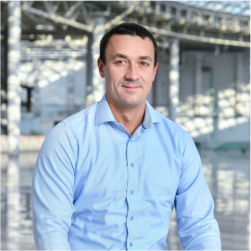
Co-author of several patents for the production of recombinant proteins (modified interferons and blood coagulation factors, trispecific antibodies), modified viral AAV capsids, new nucleases and alternative signaling domains in CAR-T cells.
Began his professional career at St.Petersburg State University in the laboratory of biochemical genetics and then in Biocad, the Russian high-tech pharmaceutical company, first as a director of the Department of Advanced Research (creation of phage display libraries of antibodies, protein engineering, the introduction of NGS and bioinformatics methods into the process of early development), and then as a director of the department for advanced research, within which a technological platform was created for the development of gene therapy drugs.
Research areas:
The Center's activities are aimed at acquiring new knowledge about the individual differences of people (at all stages of development starting from birth) in different characteristics that are associated with success in science, sports, or art. Research in this area will help to develop recommendations for creating individual training programs to prepare specialists who can effectively respond to the challenges of modern society, economy, and science.
The main goals of the Department is the development of novel interdisciplinary approaches to the study of mentoring and the effectiveness of psychotherapy and the creation of a database of brain activity in different situations.
The research area deals with the determination of the prevalence of autism spectrum disorders (ASD) in Russia by studying the relationship between the characteristics of the manifestation of the disease, demographic factors, genetic and neurophysiological characteristics of children with autism spectrum disorders. Develops professional training programs for specialists and the development of diagnostic and therapeutic approaches for dealing with autism spectrum disorders.
Research in and creation of modern robotic systems, based on the optimization and control theory, including artificial intelligence technologies.
Research areas:
Relevant projects:
Development of robotic approaches and AI algorithms for dynamic manipulation problems in service, industrial and medical applications.
Created on behalf of President of Russian Federation in 2022.
RESEARCH AREAS:
Sirius Federal Territory.
A special legal status allows to implement new ideas in education, science and high-tech manufacturing.
The status was granted on December 22, 2020.
Sirius strives to become an innovative, technological and educational hub of Russia.
 info@siriusuniversity.ru
info@siriusuniversity.ru
 8 800 100 76 63 - 4436
8 800 100 76 63 - 4436
354340, Russian Federation, Krasnodar region, Sirius Federal Territory, Olympic Ave., 1.
Social networks @siriusuniversity